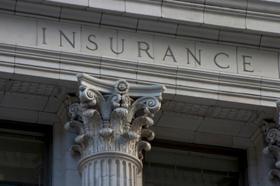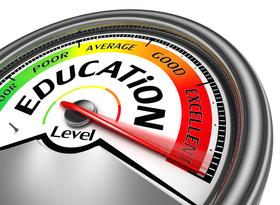No doubt about it, private school tuition costs are rising. Some schools seem to be rising at a faster rate than others. Why? What's behind those tuition increases? Unfortunately for many private schools costs of basic goods and services have risen dramatically. Energy costs alone chew up a major part of any school's budget. Faculty and staff salaries and benefits are a substantial part of budgets as well. In order to attract and retain qualified, skilled and experience personnel, you need to offer a decent compensation package with annual increases. Most schools also offer free or substantially reduced tuition for children of faculty and staff.
This video from ABC News discusses the benefits and costs of private school.
Reasons why private school tuitions are on the rise
Administrative costs are one reason private school tuitions increase year over year. Everything from employee compensation to insurance plays a part in this situation.
According to HowMuch.net: "The average cost of private school tuition has grown at a rate that is higher than inflation over the past 20-years. While there are several cost increases that have led to the rise in private school tuition, administrative employee compensation has been the main catalyst for the increases in private school expenses. The rise in the volume of employees who have a larger compensation package than a typical teacher has created the upward trajectory in private school tuition costs.
Attracting families by hiring top faculty and offering state-of-the art facilities and programs costs enormous amounts of money. Those enhancements, of course, must be paid for from a variety of sources of which tuition is one.
CNBC reports: "On the cost side, schools continue to compete for students by working to attract top faculty, build and maintain the latest facilities and offer the next generation of students amenities that can be touted on campus tours for prospective applicants."
Education Expert Ann Dolin discusses the differences between public and private high schools and to help you decide if the extra money is worth it.
Looking at the financials
It pays to look under the hood, as it were, and determine where the schools you are evaluating spend their money. The Foundation Center keeps Forms 990 for every non-profit organization which files with the IRS. It is fairly easy to see how much the school reported as income and expenses as well as a wealth of other data. Note that it is frankly impossible to compare apples to apples when it comes to private schools. Even their accounting and reporting varies from school to school. But a review of the data paints the same picture: costs are rising.
Another fact to consider is that tuition charged by a school does not completely offset expenses. That is why you will see your tuition bill filled with additional charges for technology, communications, laundry, athletics, uniforms and so on. These sundries, as the more bespoke schools style them, vary from school to school.
Is it worth it? Private schools have to spend their income wisely. They have no public funding to bail them out if they get into financial trouble. They must provide a consistently high quality service or their clients, the parents, will withdraw their children. Consequently you will find that most schools, not all of them, mind you, but most private schools are efficiently run. They economize wherever they can. Many of them are making substantial investments in what they call sustainable education in which buildings and services are made as environmentally sensitive and friendly as they can be. Despite steady tuition increase private schools remain dollar for dollar one of your better values in today's market.
This video shows you how to read a Form 990.
Ancillary income streams
Decades ago, parochial schools, such as those run by the Roman Catholic church, were heavily funded by both parishes and the dioceses in which they were located. They were able to keep their tuitions low and relatively affordable by middle and lower income families. That financial support, however, has declined precipitously over the years as the Church's financial resources have been depleted by enormous lawsuits. As a result, U.S. News reports that "half the nationa's Catholic schools have closed since 1960."
Some private schools use a work study model. The Cristo Rey schools are an example of that approach.
Generous financial aid
Most private schools in 2020 seek to attract a diverse student body. That means that they offer financial aid to any student who needs it. In many schools, students from families below a certain income level, typically $75,000, receive a tuition-free education. As you evaluate schools, always ask for financial aid, even if you think you might not be eligible for it.
Questions? Contact us on Facebook. @privateschoolreview





















-4c3194pi4wis8gsg004w0g44w-280.jpg)













